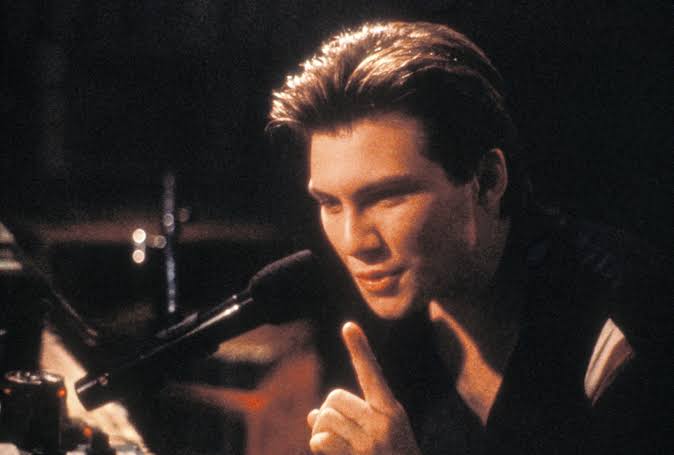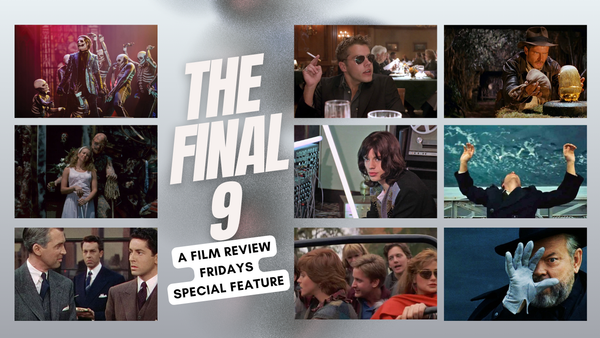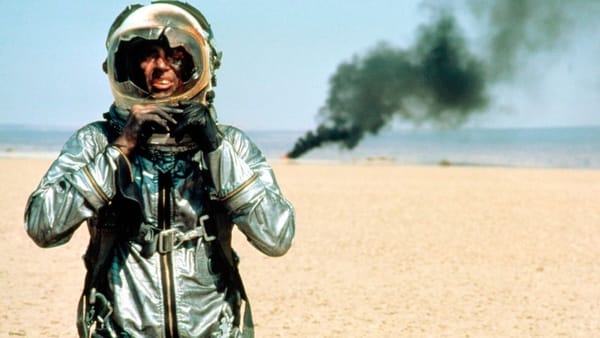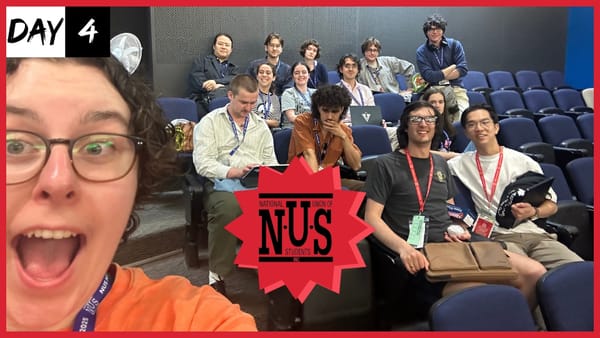Pump Up The Volume - Film Review Friday

Five years ago – two, even – I would have loved Pump Up The Volume. I can picture it almost too clearly – 18 year old Emma, crouched at the video player to fast-forward through the 90s ads on the home-recorded VHS tape her aunt lent her, eyes fixed on the screen so she can be ready to press ‘play’ and scurry back to her corner of the couch when the movie resumes. She’d have fingers still callused from guitar strings and cheeks red from crying because she can never, ever fit in, and she’d twist the hem of a faded Silverchair shirt in her fingers as the grainy image flickered on-screen. Then, when Christian Slater’s voice seared itself across the black screen with the first words of a movie that would change her, her jaw would drop open slightly, because they were exactly the kind of words that reverberated in her head daily: ‘You ever get the feeling that everything in America is completely fucked up?’
Of course, it wasn’t America I would have been having these thoughts about at 18, nor was I wondering to myself ‘is there life after high school? Because I can’t face tomorrow… let alone a whole year’. But even in Australia, and in, then, my first year of university, those words would have been about as true to me as any I’d ever heard spoken in a film. I don’t deny that they’re still absolutely true. Life is a complete and utter mess, and university has been more detrimental, destructive, and painful to me than a single other experience I can think of (yes, even more so than having a two ton car drive over my foot).
Despite this – despite how profoundly those words do resonate with me – I’m not 18 anymore. I’m 20, and Pump Up The Volume did not mean to me when I watched it for the first time last month what I know it would have meant if I’d seen it a few years earlier. If you don’t look too deep or think very long about it, it’s a good movie. The story is gripping: an isolated teenager, Mark Hunter (Christian Slater) starts up a pirate radio station, and the ‘Hard Harry’ persona under which he broadcasts becomes a local celebrity. ‘Hard Harry’ is crass, loud, rebellious – all things that Mark himself is not – and exactly what the teenagers of Arizona need, apparently. He awakens them to their oppression under parents, school, work and the general rigid structure of American society, inviting them to take control of their own lives and think for themselves. One day, a listener phones in asking Harry for advice on probably the most important question a person can face – should I kill myself?
Mark, to his credit, does his best to talk the listener through their feelings, and try to help them – but, needless to say, that student doesn’t make it through to Harry’s next broadcast. This tragedy draws the attention of school authorities, and soon the police are hunting for Mark, attempting to put a stop to the radio station that, they’re learning, has far more influence over the youth of the town than anything they could ever do.
As well as being a striking story, the soundtrack is (perhaps invariably for a film about radio) excellent – everyone from Leonard Cohen to Sonic Youth and the Cowboy Junkies features – and the performances are generally high-quality. Although Christian Slater has never been someone I’m especially interested in seeing on screen, he’s well-cast in the main role. Harry’s leering, swaggering confidence seems just as natural to him as Mark’s shy but brusque defensiveness, and his memorable voice is exactly the quality needed to make him effective as a radio host. Samantha Mathis, too, is wonderful in her first ever film role as the devoted listener who becomes Mark’s girlfriend. She exudes a cool, enigmatic glamour that draws viewers in, and I can’t help being awed by her spiky ferocity.
Given these positive comments I’ve made on the film, then, why am I reluctant to say I liked it? Simply put, it’s because I just cannot buy it. Lately I’ve felt myself becoming something of a cynic, and it’s hard for me to watch a film about teenage rebellion and the stifling bureaucracy of the academic system without remembering that this was, as with all major productions, conceived, planned, written and created by a group of executives in a major film studio who ultimately just wanted to make a profit. You can almost see the out-of-touch studio suits reminding themselves of eternal adages like ‘sex sells’ when they can’t think how else to make their film punk enough to entice the disposable incomes of disillusioned teenagers everywhere. Need it be said that if the youth of America did revolt against the system and ‘talk hard’, as the final words of the film encourage them to, they certainly wouldn’t be sitting in front of a screen gormlessly swallowing the sanitised rebellion and teen angst spoonfed to them by one of the largest industries in the world?
With that in mind, Pump Up The Volume doesn’t quite manage to reach me personally at the level I’m sure it would hope to. But, that doesn’t make it outright a bad film. It’s interesting, with a killer soundtrack, and makes genuinely worthwhile points despite its inherent deceptiveness. As I said, at any rate, I know two years ago I would have loved it; the only ‘problem’ with the film may just be that I’m technically no longer a teenager and thus can’t relate to it and appreciate it for what it attempts to be. And if this is what’s going on, then I think the only solution is for me to just get over myself – and perhaps, as the Bad Brains and Henry Rollins urge us in one of the most memorable songs in the film, to kick out the jams, motherfucker!
If anything in this piece made you feel distressed, help is available. The support services at the following numbers are available 24 hours, 7 days a week.
Lifeline: 13 11 14
Beyond Blue: 1300 22 4636
UOW Student Wellbeing Support Line: 1300 036 149
For readers outside Australia, visit findahelpline.com for local contacts.




